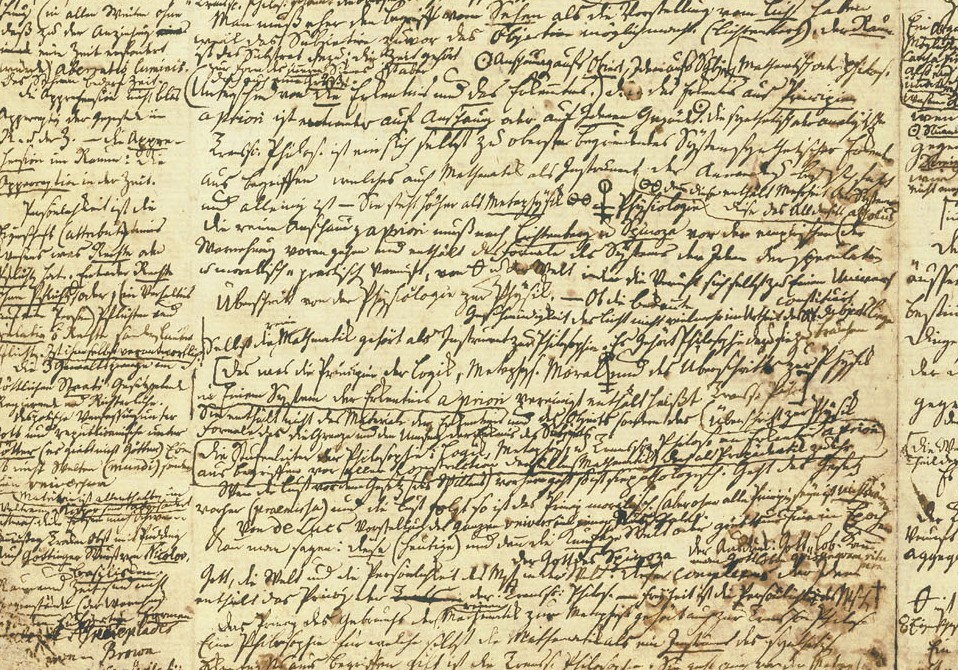On Kant’s Opus Postumum Instructor: Franziska Aigner Date & Time: Nov 13, 20, Dec 4, 11 14 to 16:30 ET

DESCRIPTION: In this seminar, we will read Kant’s last, unfinished work, the Opus Postumum (Nachlasswerk), a collection of 527 handwritten pages of manuscript that Kant worked on during the last decade of his life. Most of Kant’s writings went through a meticulous editing process that consisted of several stages, creating the solid and sometimes impenetrable, but rhetorically convincing form of Kantian philosophy. Written in part on the back of letters and newspaper clippings and interspersed with autobiographical notes, the Opus Postumum was, to a large extent, never edited by Kant himself. When reading the Opus Postumum, one can thus hear a different voice come to the foreground, a voice which is agonistic, self-contradictory, and at points very personal, as one accompanies Kant during his final years in his daily practice of philosophizing until shortly before his death in February 1804. Despite the marginal role that the Opus Postumum plays within the canon of Kantian philosophy, the manuscript contains what Kant himself reportedly claimed to be his “Hauptwerk” or “Chef d’oeuvre,” providing, at last, what he believed to be the keystone to his entire doctrinal system.
This Seminar will read the Opus Postumum in four complementary sessions. The first session will begin by outlining the problem that Kant set out to tackle in the Opus Postumum as well as the thoroughly unsettling methodological and systematic consequences that it poses for Transcendental Philosophy and Post-Kantianism. The second session will focus on the earliest draft, the Oktavenentwurf, written in 1796, in which Kant first attempted to bridge the gap between metaphysics and physics by deducing the system of the moving forces of matter (elementary system of matter). The third session will move on to parts of the manuscript written between August 1799 and December 1800, in which Kant revisited central tenets treated in the Critique of Pure Reason (1781), that is, self-affection and self-positing. The fourth and last seminar will then turn to the very last pages of manuscript, written between December 1800 and April 1803. It is here, at the very end of his life, that Kant reconceived of the structure of reason and put forth, at last, his system of Transcendental Philosophy.
IMAGE: Emanuel Kant, Opus postumum,1702
To see The New Centre Refund Policy CLICK HERE.
To see The New Centre Refund Policy CLICK HERE.